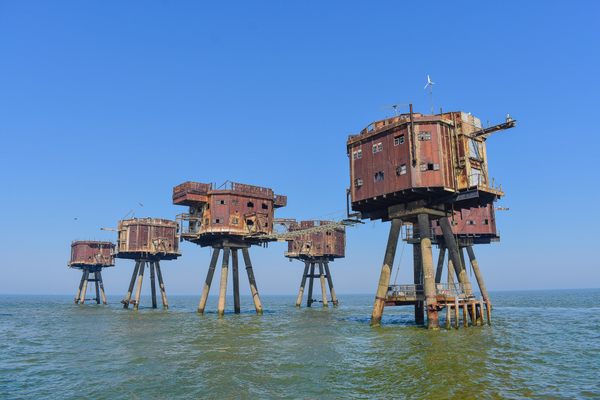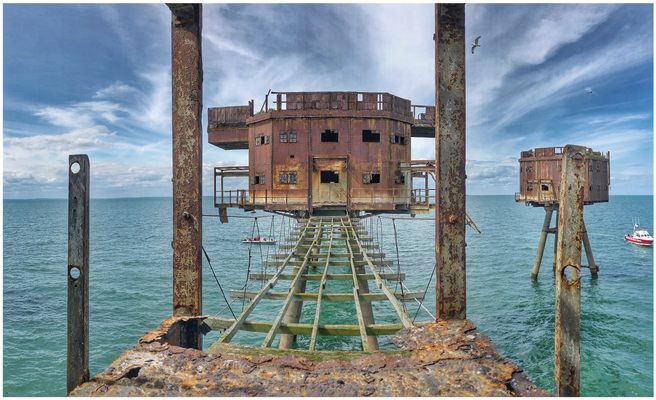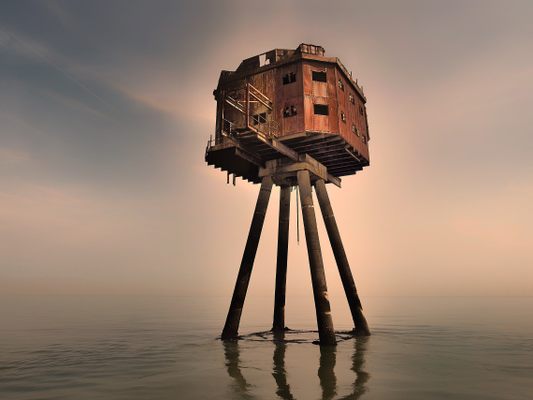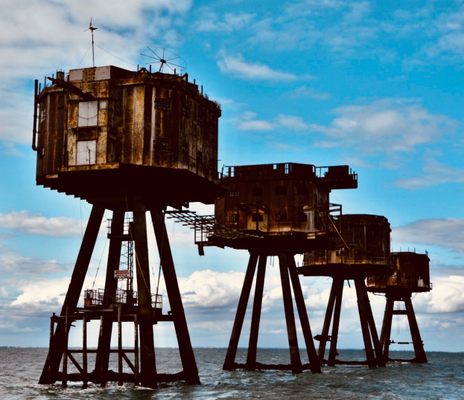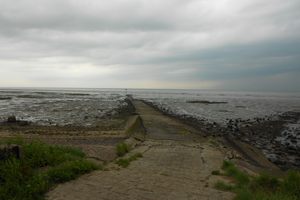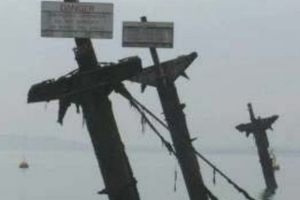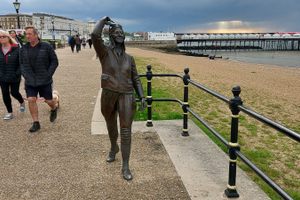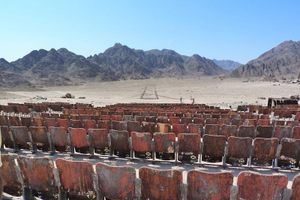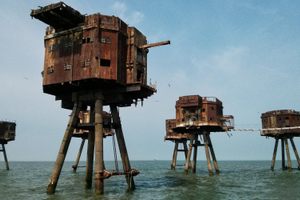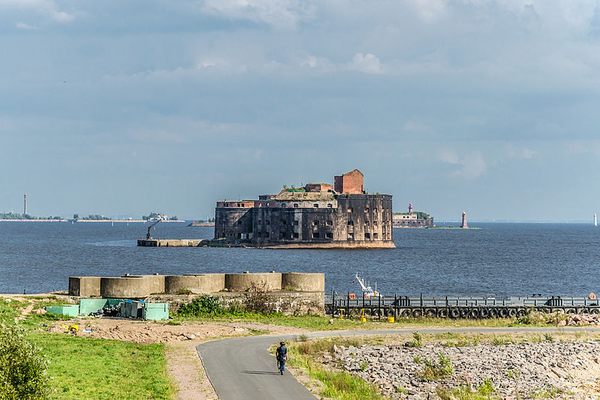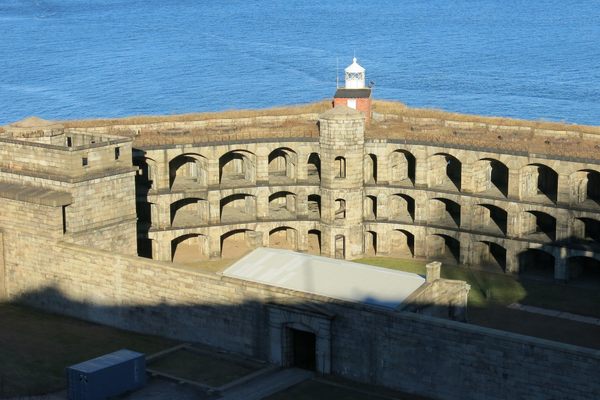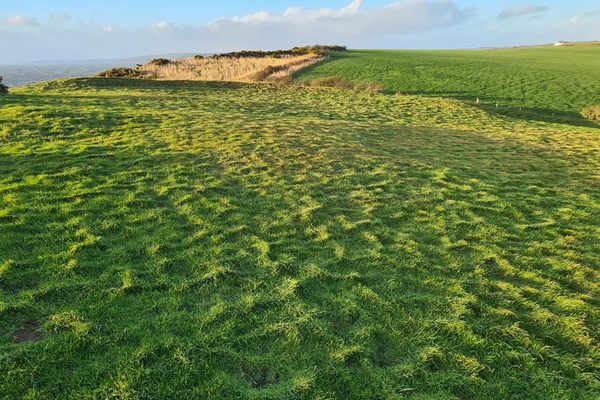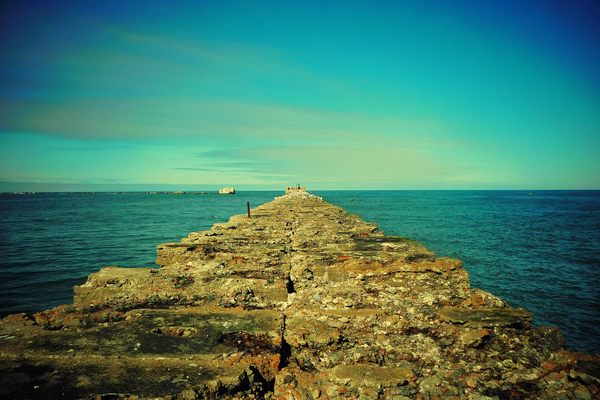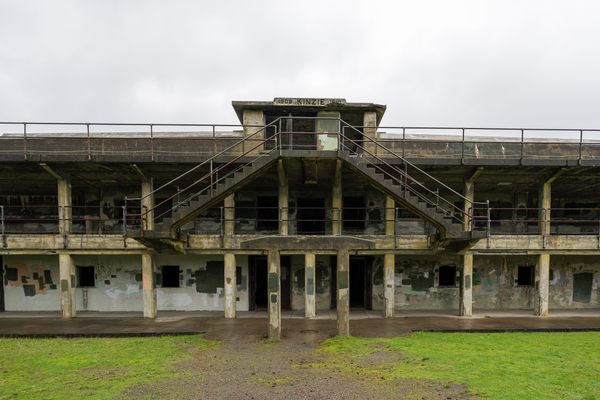About
Rising from the water like rusty invaders out of H.G. Wells, the Maunsell Army Forts in the Thames Estuary are decaying reminders of the darkest days of World War II.
Part of the Thames Estuary defense network, the anti-aircraft tower-forts were constructed in 1942, with each fort consisting of a cluster of seven stilted buildings surrounding a central command tower. When operational, catwalks connected the buildings. Built on land and then transported to their watery homes, the forts were designed by Guy Maunsell, a British civil engineer, later known for innovations in concrete bridge design. Originally there were three of these forts, but only two are left standing: the Redsands Fort and the Shivering Sands Fort.
After their successful wartime career, the forts were decommissioned in the 1950s. The Nore Army Fort was badly damaged by both a storm and being struck by a ship and was dismantled in 1959-60. In the 1960s and 70s, the remaining abandoned forts were famously taken over as pirate radio stations. The micro nation Principality of SeaLand occupies a nearby Navy fort of a different design known as the Roughs Tower, also built by Maunsell. All of the army forts are now abandoned.
In 2003, the Project Redsands organization was formed with the aim of protecting and possibly restoring the Redsands Fort, chosen over Shivering Sands due to its better state of preservation. More recently, the Shivering Sands Fort was occupied by the artist Stephen Turner for 36 days in 2005, roughly the same amount of time a WWII serviceman would have spent at the fort. He described the project as an experiment in isolation and wrote a blog and a book about the project. In 2008 The Prodigy filmed a music video at Redsands.
According to Underground Kent, an organization dedicated to exploring and documenting the military installations in Kent: "Access for the men posted to these forts was via an entrance at the base of the platform. Parts of the ladders that the men would have used are still visible today but are in a very poor condition. Indeed, attempting to access these forts is extremely hazardous, and they are best viewed from a boat and a safe distance."
The forts are now in varying states of decay, and attempting to enter them is probably ill-advised, if not illegal. They can be seen by boat or, on a clear day, from Shoeburyness East Beach.
Related Tags
Know Before You Go
The closest place near the sea forts is Whitsable, about an 8-mile boat trip. You can see them from the coast on a nice day.
Community Contributors
Added By
Published
February 4, 2010
Sources
- Underground Kent - detailed website with info on the towers as well as other forts & ruins near Kent
- http://www.undergroundkent.co.uk/maunsell_towers.htm
- Stephen Turner Sea Fort Project
- http://www.seafort.org/
- http://www.seafort.org/blog/index.html
- Project Redsands
- http://www.project-redsand.com/
- Subterranean Exploration
- http://sub-ex.blogspot.com/2008/08/shivering-sands-maunsell-army-forts.html
- Historic photos of the forts
- http://www.marinebroadcasters.com/sea%20fort/seafort%20based%20radiostations.htm







